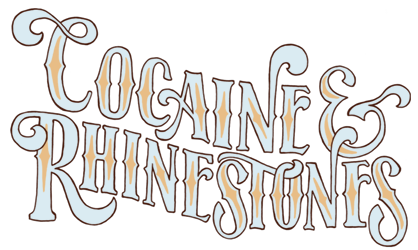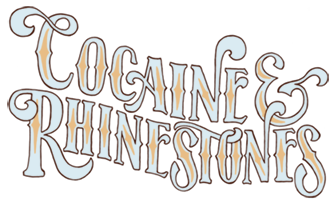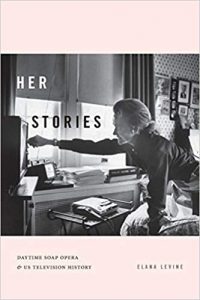
It’s a known fact that “He Stopped Loving Her Today” is the best and saddest country song of all time. But… is it?
Contents (Click/Tap to Scroll)
- Primary Sources – books, documentaries, etc.
- Transcript of Episode – for the readers
- Liner Notes – list of featured music, online sources, further commentary
Primary Sources
In addition to The Main Library and the Season 2 Library, these books were used for this episode:
Transcript of Episode
As part of my agreement with Simon & Schuster to publish a book adaptation of Season 2, the transcripts that have been freely available for over a year will be temporarily removed from this website. Please consider ordering a copy of Cocaine & Rhinestones: A History of George Jones and Tammy Wynette through your favorite local bookstore or requesting that your local library order a copy you can check out.
Liner Notes
Excerpted Music
This episode featured excerpts from the following songs, in this order [with links to purchase or stream where available]:
- George Jones – “He Stopped Loving Her Today” [Amazon / Apple Music]
- George Jones – “I’ve Aged 20 Years in 5” [Amazon / Apple Music]
- George Jones – “Her Name Is” [Amazon / Apple Music]
- Kris Kristofferson – “Help Me Make It Through the Night” [Amazon / Apple Music]
- George Jones & Tammy Wynette – “The World Needs a Melody” [Amazon / Apple Music]
- George Jones – “Almost Persuaded” [Amazon / Apple Music]
- Charlie Louvin – “Will You Visit Me on Sundays?” [Amazon / Apple Music]
- George Jones – “Will You Visit Me on Sunday?” [Amazon / Apple Music]
- George Jones – “I Know” [Amazon / Apple Music]
- George Jones – “Loving You Makes You Mine” [Amazon / Apple Music]
- George Jones – “Try” [Amazon / Apple Music]
- George Jones – “A Good Year for the Roses” [Amazon / Apple Music]
- George Jones – “High on the Thought of You” [Amazon / Apple Music]
- James Taylor – “Bartender’s Blues” [Amazon / Apple Music]
- George Jones – “Bartender’s Blues” [Amazon / Apple Music]
- George Jones – “The Grand Tour” [Amazon / Apple Music]
Excerpted Video
These videos were excerpted in the episode. For any number of reasons, YouTube (or DailyMotion) may remove them in the future but here they are for now:
Commentary and Remaining Sources
An instance of sound pollution beyond my control forced me to cut a few words in the audio of the episode that would have made this more clear but soap opera pioneer Irna Philips’ public statements on marriage ranged from declarations she would give it all up if the right man came along to openly mocking that very same notion.
The narrator at the beginning of the As the World Turns clip (above) did talk about Salvo in the context of it being a laundry detergent brand, which it briefly was at that time, until everyone realized it barely worked and stopped using it. But Salvo also was and still is a brand of dish soap.
My main sources for the intro on soap opera were the books Speaking of Soap Operas by Robert C. Allen and Her Stories by Elana Levine. As far as readability goes, both of these books are quite dense and what you would call “academic” in tone. Speaking of Soap Operas is several decades older and I think maybe the first serious book written about soap operas, so there’s a lot of exploring What’s It All Mean-type questions in the beginning and where it really came alive for me was in unpacking the mechanics of the business. Her Stories is much more recent, about twice as big and goes deeper into the actual content and characteristics of soaps throughout history. Overall, I’d say these two books are fairly good companion pieces for anyone interested in the subject.
As for the main topic, I tried to write this episode in a way that would really drive home the point I’m always putting across in these Liner Notes: you’re not necessarily hearing my personal opinions when you listen to me talk. I do sometimes have to inject opinion to tell the story I want to tell but the only reason I’m saying any of these things is purely to tell the story I want to tell. When I have a bunch of quotes from the people involved in creating a song that all say the same thing, even if it’s not what I would say or the way I would say it, that’s the thing I have to relate to you if I’m going to tell you the truth about country music and the people who made it.
I know most of you don’t care but the ones who do care about it as much as I do, so I should say there are several reasons I believe the sound in “A Good Year for the Roses” was a pedal steel run through a Boss Tone. First, there were two pedal steel players booked on that recording session but the song features none of the sounds we associate with pedal steel. Next, one of those pedal steel players was Weldon Myrick, one of the most prominent users of that Boss Tone technique. Next, if you listen closely you can hear a delay in the signal, which is not something that would have been easy to apply to only a cello during an overdub session in this era, so it’s pretty likely that sound was produced in the live room with the rest of the band during the main tracking sessio. Since you can clearly also hear a bass and Bob Moore was known to dislike the sound of bowing a standup bass, it all adds up to a pedal steel player with a Jordan Boss Tone.
For the same reasons there are people who insist “The Grand Tour” couldn’t possibly be about death, I’m 100% certain this episode is going to cause a lot of people to try arguing with me about the meaning of “A Good Year for the Roses.” I didn’t want to go super deep into analysis of two songs in the same episode so I picked the more ambiguous one and unpacked “The Grand Tour” in the main body. If you’re addicted to not changing your mind about things, feel free to fast forward a bit but everyone else strap in because here we go again:
“A Good Year for the Roses” is not a song about a man and a woman being so sad they both go deaf. If the baby was crying but the guy didn’t hear it then he wouldn’t have known he wasn’t hearing a crying baby to be able to say it in the song. There is also a reason the word “familiar” is in the single line hinting at why this isn’t a family anymore. It is extremely rare to find examples of writers like Bobby Braddock and Curly Putman who will outright state that most people don’t actually understand what their song is about. Most writers roll with whatever the popular interpretation of their songs are because they were hit songs so why mess with it? When Jerry Chesnut said the thing 1,000 people are gonna send me about the wife leaving and the baby crying, he was always telling a story about the idea that made him start writing the song, not the finished song. When he told that story about starting the song, he usually also mentioned a dying dog as part of his original idea. But Jerry was trying to write a sad song and putting a dead dog in the song would have turned it into the stereotypical country song people always joke about (but doesn’t really exist as a stereotypical country song). The reason there is no dog at all in the song is because there’s a dead baby in the song for everyone who can see it. Why else would the guy take the time to mention it was the couple’s one and only baby? The reason their only baby’s cries go unheard is because if you had an infant die the sound of it not crying would be the only thing you heard for a very long time and the bedroom is exactly where that not crying would be the loudest. Today’s the first day the wife hasn’t made the bed because she’s been trying to process her grief and keep the normal routine going. On the other hand, it takes time for a lawn to need mowing, especially if it hasn’t been raining. As Jerry Chesnut found out when he called the flower shop, young rose plants do not thrive in heavy rain, so if it’s been a good year for the roses, then it hasn’t been raining much, which means the husband hasn’t mowed that lawn for a while. He’s not just some lazy asshole; he’s irreparably damaged by tragedy and stuck in his grief, which he recognizes is why the wife no longer wants him and has to leave in order to save herself.
Oh, P.S. on “The Grand Tour,” some people choose baby names before the child is born and some people name their children Mercy.
All of my sources for Season 2 are on the Season 2 library page.
As for commentary on specific sources, the book I have to talk about today wasn’t actually used as a source for a single sentence in Season 2 because it was so bad. But it was also so bad that I have to talk about to warn anyone who thinks they may be interested in reading it. He Stopped Loving Her Today: George Jones, Billy Sherrill, and the Pretty-Much Totally True Story of the Making of the Greatest Country Record of All Time by Jack Isenhour is not only the worst book I read while researching Season 2 but one of the worst books I’ve ever read about country music in any capacity. Why this author chose to write this book, cover this subject and how it got published is all a complete mystery to me, as he clearly knows almost nothing about the genre. (At one point, he confesses surprise to learn there is a death in the song “Green, Green Grass of Home,” which he only found out from interviewing the songwriter and being told in the process of writing the book. We’re talking a total lack of qualification, here.) The entire first half of the book is spent trying to present and unpack ideas rock music fans have about country music as if these ideas are all held by country fans. Even if that were true, this author would be unequipped to tackle those ideas. By the time it gets around to covering the song “He Stopped Loving Her Today,” the book has dismantled any expectation of it being an authoritative account and literally none of the information is new or insightful. I do feel bad for saying it but the title is aggressively misleading and those who spend money on it will find the contents irredeemable.
Alright, just like earlier in the season when the “White Lightning” episode was followed with one covering the same time period from a different perspective, when the podcast returns we will be talking about George Jones’ life between his divorce from Tammy Wynette through to his critical and commercial triumph with “He Stopped Loving Her Today.” It gets dark. In fact, the rest of Season 2 is full of stuff that is going to be difficult for me to say out loud and disturbing to hear. Consider this your warning.



